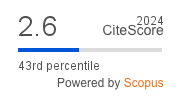Building Dynamic Lexicons for Sentiment Analysis
DOI:
https://doi.org/10.4114/intartif.vol22iss64pp1-13Keywords:
Lexicon Induction, Sentiment Analysis, Natural Language ProcessingAbstract
Nowadays, many approaches for Sentiment Analysis (SA) rely on affective lexicons to identify emotions transmitted in opinions. However, most of these lexicons do not consider that a word can express different sentiments in different predication domains, introducing errors in the sentiment inference. Due to this problem, we present a model based on a context-graph which can be used for building domain specic sentiment lexicons
(DL: Dynamic Lexicons) by propagating the valence of a few seed words. For different corpora, we compare the results of a simple rule-based sentiment classier using the corresponding DL, with the results obtained using a general affective lexicon. For most corpora containing specic domain opinions, the DL reaches better results than the general lexicon.
Downloads
Metrics
Downloads
Published
How to Cite
Issue
Section
License
Copyright (c) 2019 Iberamia & The Authors

This work is licensed under a Creative Commons Attribution-NonCommercial 4.0 International License.
Open Access publishing.
Lic. under Creative Commons CC-BY-NC
Inteligencia Artificial (Ed. IBERAMIA)
ISSN: 1988-3064 (on line).
(C) IBERAMIA & The Authors









